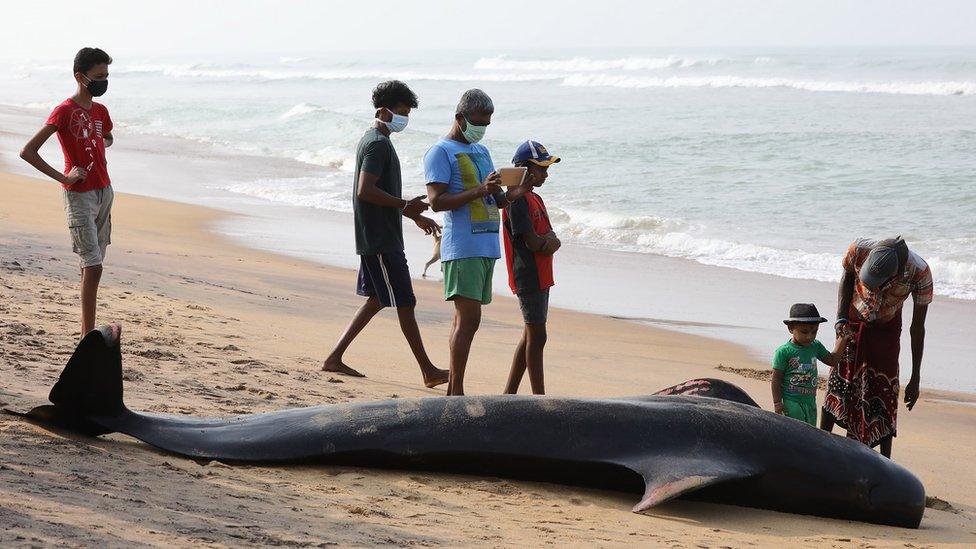More than 100 beached whales saved off Sri Lanka
- Published

Only four whales died, all others were saved
More than 100 whales stranded on a Sri Lankan beach have been guided to the sea in an overnight rescue operation.
Three pilot whales and one dolphin died of their injuries following the mass beaching near the city of Panadura, south of the capital Colombo.
The rescue was conducted by the navy, with help from environmental protection officers, police and local residents.
It's thought to be the largest stranding in Sri Lanka. It is not known why whales beach themselves.
Local villagers defied a coronavirus curfew to join the navy and coast guard and help push the small whales back into deeper water so they could swim out into the ocean.
"The people around here got together and saved most of them," marine biologist Dr Asha De Vos told news agency AFP.
"But some of the whales were very tired fighting to stay afloat the whole night and didn't have enough strength to go to deep sea. That is why a few died."
Watch as rescuers in Sri Lanka try to save beached pilot whales
Whale beachings are not uncommon. Scientists say the reason is often unknown but they have a range of theories, including whales following fish to shore and becoming disorientated.
Highly social mammals, pilot whales are particularly known for stranding in groups because they travel in large, close-knit communities which rely on constant communication.
In September, several hundred whales died on the coast of Tasmania in Australia in one of the country's biggest stranding on record and one of the largest in the world.
- Published3 November 2020
- Published23 September 2020
- Published24 September 2020